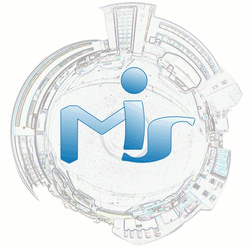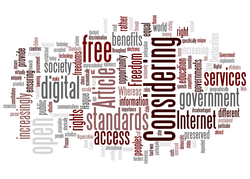
In businesses, efficiency and effectiveness are always the considerations of developments and changes. With the development ushered by management information system, organizations can easily trace and resolve areas of concern in their respective affiliations. Development needs not only the top management but so much so the frontline people because that is where the data is initially gathered. So from there, by involving the frontline people, relevant data will be extracted creating lesser time cost and other resources. MIS also must consider these frontline people because they are the ones who are hands-on with the system. That would comprise the ideal MIS initialization, involving all levels of the organization.
Information is the key towards organizational concerns. This would of course mean relevant information. What is relevant to one may not be useful at any cost to another. True that information is subjective, the way that it becomes mere data to other people. Information not only serves as it is. It needs thorough, accurate and relevant interpretation and analysis. They say information has a value which we ourselves put. This information will be useful for the organization’s decision-making strategies. Relevant information would probably result to more sound decisions. For example, based on information about customers, competitors, and production capabilities, a manager may decide to alert top executives that a strategic decision needs to be made. Top executives would use the information received to identify alternatives for consideration. Each alternative would then be evaluated based on feasibility, cost, time to implement, consistency with corporate strategy, and other criteria. On the basis of their assessment, top executives would select the alternative that makes the most business sense and begin implementation. Finally, information would be gathered to assess the quality of the decisions that were made. Information will also give an organization a competitive advantage and thus secure a spot in the industry.
Information is the key towards organizational concerns. This would of course mean relevant information. What is relevant to one may not be useful at any cost to another. True that information is subjective, the way that it becomes mere data to other people. Information not only serves as it is. It needs thorough, accurate and relevant interpretation and analysis. They say information has a value which we ourselves put. This information will be useful for the organization’s decision-making strategies. Relevant information would probably result to more sound decisions. For example, based on information about customers, competitors, and production capabilities, a manager may decide to alert top executives that a strategic decision needs to be made. Top executives would use the information received to identify alternatives for consideration. Each alternative would then be evaluated based on feasibility, cost, time to implement, consistency with corporate strategy, and other criteria. On the basis of their assessment, top executives would select the alternative that makes the most business sense and begin implementation. Finally, information would be gathered to assess the quality of the decisions that were made. Information will also give an organization a competitive advantage and thus secure a spot in the industry.

 RSS Feed
RSS Feed